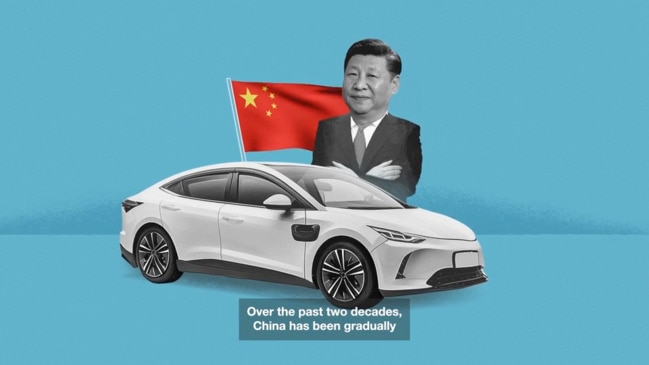Australian EV drivers to get hit with new tax, if goverment gets its way
The government wants EV drivers to pay their fair share of costs, like road upgrades — but it could be in for a challenge.

Treasurer Jim Chalmers has flagged the development of a new road-user charge across Australia for drivers of electric vehicles to ensure EV drivers are contributing a fair share to road upgrades.
The Treasurer has made no secret of his support for a shake-up of the current system before the election, raising the idea with business leaders in February.
But the debate over road-user charges (RUC) for electric vehicles is now set to be reignited as a result of his speech to the national press club.
“We will also continue to work with states and territories on the future of road-user charging,’’ Dr Chalmers said.
“All of this represents a big agenda on the supply side of our economy. None of these reforms are simple.”

How does fuel excise work?
The current rate of fuel excise is 50.8 cents in excise for every litre of fuel purchased.
For a typical household with a car running on petrol, the tax costs more than $1200 a year.
But the flat sales tax isn’t paid by drivers of pure electric vehicles, who simply need to plug in their cars to recharge.
While registration and driver’s licence fees go to state and territory governments, fuel excise is collected by the federal government.
Australian motorists paid an estimated $15.71 billion in net fuel excise in 2023-24, and are expected to pay $67.6 billion over the four years to 2026-27.
However, governments have long-warned that a road-user charge will be required to fill the gap in the budget left by declining revenue from the fuel excise, as the petrol and diesel engines in new cars consume less fuel and Australians adopt hybrid and electric cars.

What does the AAA say?
The Australian Automobile Association (AAA) is calling for a national approach to road-user charging but wants a guarantee the revenue will be earmarked for road upgrades.
The AAA backs a distance-based road-user charging as a fairer and more equitable way to fund land transport infrastructure.
The 2024 federal budget forecasted a reduction in fuel excise receipts by $470 million over four years from 2024-25.
Roadblocks to reform
Currently, New South Wales is the only state with firm plans to introduce a road-user charge from 2027 or when EVs reach 30 per cent of new car sales.
Plug-in hybrid EVs will be charged a fixed 80 per cent proportion of the full road-user charge to reflect their vehicle type.
Western Australia has also stated an intention to implement a road-user charge.
Meanwhile, Victoria’s electric vehicle levy had to be scrapped following a ruling from the High Court.

Two Victorian electric car owners launched a legal challenge on the basis the tax was not legal as it was an excise that only a federal government could impose.
They won with the High Court upholding the legal challenge.
There have been several false starts to enshrine a road-user charge including in South Australia, where the former Liberal Government planned to introduce a charge for plug-in electric and other zero emission vehicles, which included a fixed component and a variable charge based on distance travelled.
It was later pushed back to 2027 due to a backlash before the legislation was ultimately repealed.
‘Gold standard’ for reform
Some experts argue the gold standard for reform is a variable rate that factors in the vehicle’s mass, distance travelled, location, and time of day.
But there’s a big barrier to the Commonwealth imposing those charges because the Constitution prohibits it from imposing taxes that discriminate between states or parts of states.
State governments could impose those levies, but as the experience of the Victorian Government underlines, it is legally complex.






